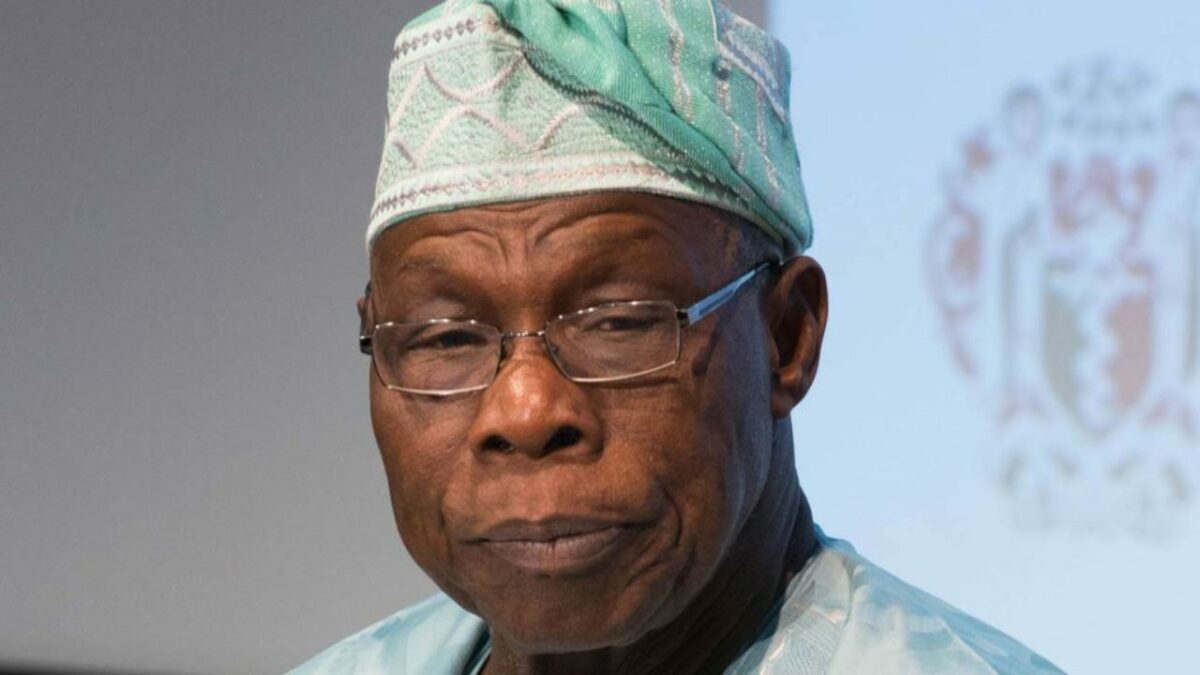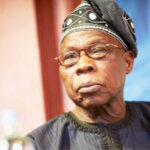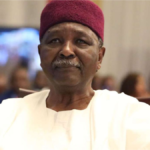Former President Olusegun Obasanjo has said that western liberal democracy has not been an effective system of government in Africa because it was forced on the continent.
He advocated what he called “Afro democracy” in place of western liberal democracy.
Obasanjo spoke yesterday in Abeokuta, the Ogun State capital, at a high-level consultation on ‘Rethinking Western Liberal Democracy for Africa’.
The event was attended by former Governors Kayode Fayemi (Ekiti State), Sule Lamido (Jigawa) and Liyel Imoke (Cross River), and former Minister of State for Defence, Erelu Olusola Obada, among others.
Inequality: Nigeria’s silent crisis
Gombe gov releases N693m for projects in 77 communities
A former governor of Sokoto State, Animu Tambuwal and a former Minister of Aviation, Osita Chidoka, spoke virtually at the event, which also saw 10 professors selected from universities across Nigeria and Ghana deliver papers on the theme.
Obasanjo said the western style of democracy failed in Africa because it did not take into account the views of the majority of the people.
He noted that western liberal democracy is a “government of a few people over all the people or population, and these few people are representatives of only some of the people and not full representatives of all the people.”
According to him, African countries have no business operating a system of government in which they have no hand in its “definition and design”.
“Once you move from all the people to representatives of the people, you start to encounter troubles and problems. For those who define it as the rule of majority, should the minority be ignored, neglected and excluded?
“The essence of any system of government is the welfare and well-being of the people—all the people. Here, we must interrogate the performance of democracy in the West, where it originated, and with us, the inheritors of what we are left with by our colonial powers.
“We are here to stop being foolish and stupid. Can we look inward and outward to see what in our country, culture, tradition, practice, and living over the years that we can learn from, adopt and adapt with practices everywhere for a changed system of government that will serve our purpose better and deliver.
“We have to think out of the box and after, act with our new thinking. You are invited here to examine clinically the practice of liberal democracy, identify its shortcomings for our society and bring forth ideas and recommendations that can serve our purpose better, knowing human beings for what we are and going by our experiences and the experiences of others.
“We are here to think as leaders of thought in academia and leaders of thought with some experience in politics,” Obasanjo said.
In his submission, Fayemi noted that there is a trust deficit between followers and leaders in Africa, which according to him, has eroded liberal democracy in the eyes of the people.
He concurred that having a more socially and culturally relevant system would address the challenges associated with the practice of liberal democracy.
“One that will enable the governed to hold the governors more accountable, one that will bring government nearer to the people and one that will deliver the goods in terms of quality of life of the average citizens,” Fayemi said.
Politicians should change their attitude-Lamido
Lamido submitted that nothing is wrong with democracy, but that the practitioners need to change their character in the practice of democracy.
On his part, Imoke said democracy as being practised in Africa is a variation of the system.
“If we must practice western liberal democracy, we must practise it and then how must we practise it?
“That takes me to the question of its practice. Are we really practising Western liberal democracy in that essence, the way it was handed over to us? I am not sure we can answer with 100 percent certainty,” he said.
Nigerians gradually losing faith in democracy – Atiku
In a related development, former Vice President Atiku Abubakar has said that Nigerians are gradually losing faith in democracy.
Atiku stated this yesterday while reacting to recent court judgments that sacked opposition parties’ governors in Plateau, Kano and Zamfara States.
In a statement by his media adviser, Paul Ibe, the former vice president said the situation was getting more curious that all the states where the courts had made controversial declarations are states being controlled by the opposition political parties.
“What the ruling party missed out on Election Day are being delivered to them through the courts.”
“These are clearly ominous signs that threaten not just our faith in the electoral and judicial system but evincing that our democracy is compromised. It is also crystal clear that the ruling party will not desist from this inglorious ideology of ‘snatch, grab and run away with power,’ he said.
CSOs, activist disagree with ex-president
Speaking to Daily Trust, the Executive Director of the Civil Society Legislative Advocacy Centre (CISLAC) and Head of Transparency International Nigeria, Mallam Auwal Musa Rafsanjani, said Obasanjo lacks the moral ground to pontificate on democracy.
“With due respect, the former president Obasanjo had the opportunity to help strengthen democratic system in Nigeria, but rather was encouraging and engaging in subverting democracy by making elections a do-and-die affair, forcefully removing sitting governors, removing party chairman, dictating National Assembly leadership and embarking on undemocratic third term agenda for his tenure elongation.
“Therefore, he has no moral credentials to speak about his so-called western democracy shortcomings since he was in the position to help Nigeria to strengthen democratic institutions and values based on our historical background,” Rafsanjani said.
Also commenting on Obasanjo’s position, the Executive Director, Resource Centre for Human Rights and Civic Education (CHRICED), Dr Ibrahim Zikirullahi, in a telephone interview with one of our correspondents, said while the challenges of democracy in the context of Nigeria are clearly visible for all to see, the key issue is not about the form, but about the content.
“Whether we adopt Western, African or Arabian democratic models, if there is no sincerity of purpose and leadership which works in the collective interest, the quest for a prosperous and stable country, will be a mirage. The core issue is therefore not about what form our democracy takes. The important thing is the content of character it demonstrates.
“At the heart of that is sincere, just and fair leadership, and informed followers, who should work collectively to build the nation. Anything short of that amounts to begging the issues. That is why we have many colonized countries in Asia, which are practicing western style democracy and they are making progress, while here in Nigeria we keep lamenting about the form of our own system,” Zikirullahi said.
A pro-democracy and human rights activist, Idayat Hassan, told Daily Trust that there are some universal tenets of democracy that apply worldwide irrespective of what part of the world it is operated on.
Hassan, who is also the Executive Director of the Centre for Democracy and Development, stated: “I disagree that democracy should be custom-made, a movement towards that direction could for instance mean a leader could become a maximum ruler instead of a fixed term, no precept for the rule of law or fundamental rights.
“Categorically what has failed is democracy and her ability to deliver development to the people. That is the deficit we must cure nothing else,” Hassan said.
Also, the Executive Director, Sustainable Gender Action Initiative (SGAI), Hajiya Mufuliat Fijabi, said Obasanjo “has a good point, but in my own opinion, the kind of democracy we actually practise is African-defined and that’s why some schools of thoughts actually described the kind of democracy we have in Africa as evolving.
“Besides, the African kind of democracy is not an exact match of democracy as practised in the United States or the United Kingdom for example. We should strive to define our own democracy and practise it well. We should not pretend to describe our current democracies in Africa as a replica of those practised in the other countries of the world,” Fijabi said.

 Join Daily Trust WhatsApp Community For Quick Access To News and Happenings Around You.
Join Daily Trust WhatsApp Community For Quick Access To News and Happenings Around You.


